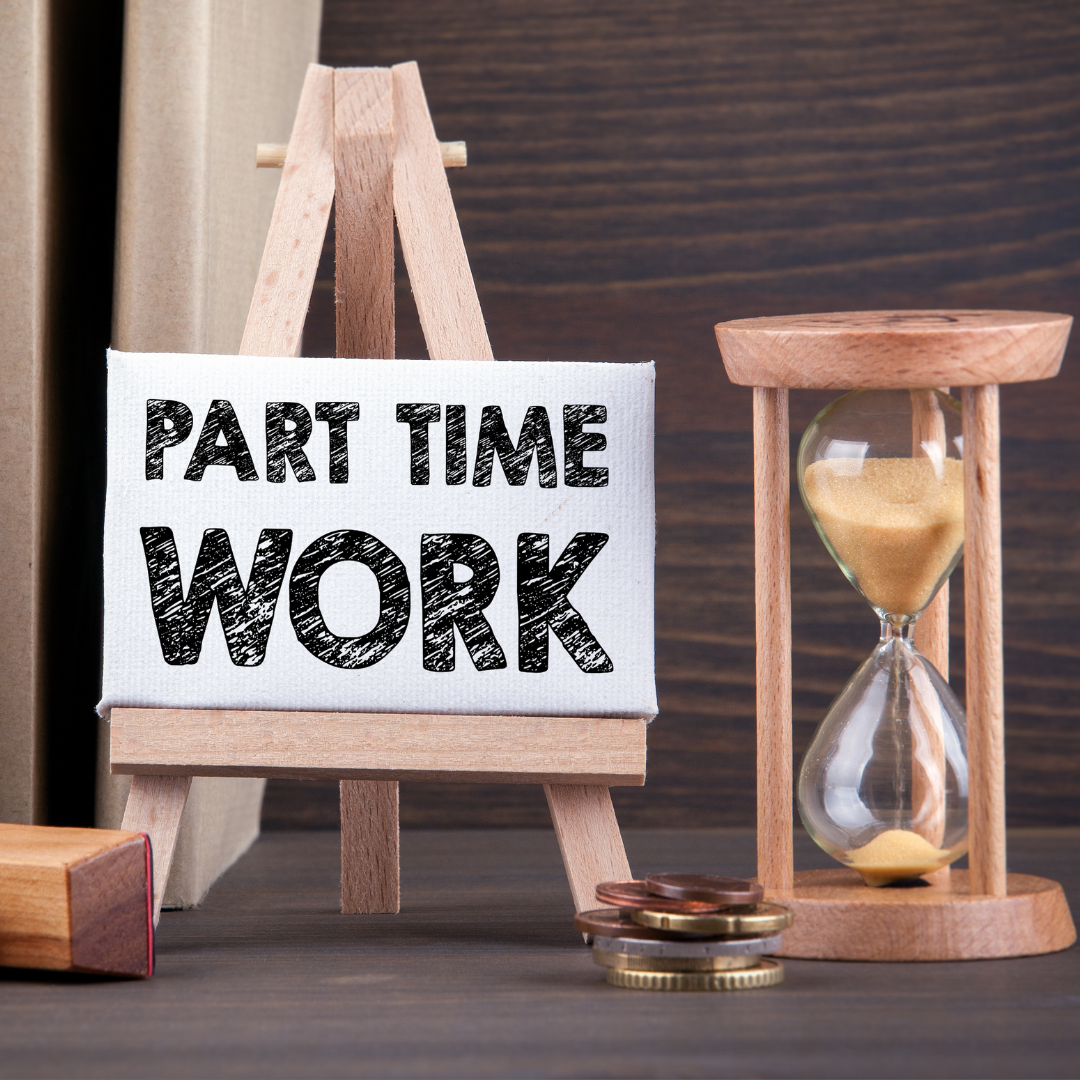Important notice - We are aware of a scam where people are impersonating CMD Recruitment to offer jobs via WhatsApp & Telegram. This is a scam, CMD Recruitment will never contact new candidates via these methods. Any legitmate offer from CMD Recruitment would be made via a telephone call.

September 29, 2021
For working parents, part-time jobs have provided a lifeline in the past, making the difference between just having enough money and struggling to manage. But things appear to be changing, and the impact upon people with families is hard to ignore.
The impact of Covid-19
Whereas in the past, finding a part-time job was fairly easy, Covid-19 has shaken up the whole of the job market, including this sector. Whilst the furlough scheme may have kept many in work, preventing them from falling into the unemployment chasm, it has had a large impact upon those who need to work less than 35 hours a week; part-time workers.
Timewise recently commissioned the Institute for Employment Studies to carry out an analysis on this sector. The results have been published in a report entitled ‘The impact of COVID-19 on part-time employees’. As many as 1 in 42 people working in the UK are part-time with many being in low paid frontline jobs. When surveyed, 80% of part-time workers (about 5.8 million people), said they did not want a job involving more hours.
The importance of part-time work
For people like this, often involved with caring for family members, being able to work part-time is a necessity. They may be looking after young children, those in the family with sickness or disabilities, elderly relatives or even have an illness/disability themselves. Since the very start of the pandemic, those in part-time jobs have suffered the most. The report revealed that for those who have suffered job losses and where part-time work is an obligation, the current job market offers little or no possibility of finding alternative employment, with just 8% of vacancies in the UK being part-time.
Many of those falling into the part-time category are women, young people and ethnic minorities. They have been so heavily affected by the Covid-19 pandemic and the rise of flexible, hybrid and remote working that, for many of them, there is now no such thing as a part-time job. Whilst many working full time have also felt the impact of furlough, the numbers are far less than those working part-time hours. As many as half of the part-time workforce have had their hours cut or been furloughed, compared to just one-third of full-time employees. If we look at the figures published in the report, 44% of part-time workers were off work during the first lockdown and this continue until September 2020. As far as full-time workers were concerned, the same figure was just 33.6%.
The impact of furlough
The worrying impact of furlough has left many part-time workers feeling as if their jobs are disappearing fast, with the rate of part-time employment falling to 24% – the lowest since 2010. The amount of women working part-time has also fallen substantially, from 41% 12 months ago to 37% now. Even though the job market is generally in recovery, with more full-time jobs than those looking to fill them, the real dilemma faces part-time workers. Some have been forced to look for full-time work (involuntary full-time work), or face unemployment. Timewise points out just how worrying this is, with this form of precarious employment being unsustainable long term due to things such as childcare demands and costs.
Women make up the majority of part-time workers and with the furlough scheme ending this September; many of them worry that their part-time work will cease. With very few positions left to replace those lost, they are going to find themselves forced out of work and fighting for the 8% of part-time jobs remaining. What is needed is for the job market to offer positions where people can work fewer hours, not just remotely. Without this change, the concern is that job inequality will worsen and the gender equality gap widens.
The fall of part-time employment rates
The Covid-19 crisis has forced part-time employment rates to fall at the fastest rate for thirty years. Even more concerning, the percentage of women working part-time is at the lowest rate ever. They have been hit badly by lockdown, with no remedy in place to help them once it was lifted.
Many part-time workers have had to take on full-time work, particularly where a partner has lost income. NHS workers have been forced into the same predicament, purely to deal with the pandemic. The days of flexible part-time working are looking grim, with many workers struggling to cope and sustain a family. These part-time workers need some form of security to strengthen their ability to work flexibly.
Government recommendations
Given the results of the report, Timewise will be making a list of recommendations to the government to aid part-time workers:
Conclusion
In answer to the question, “Is there any such thing as a part-time job?” the reply has to be negative unless action is taken to correct the current imbalance.
The Timewise report, ‘The impact of COVID-19 on part-time employees’ provides invaluable insight and information for those involved in the employment sector. Employers can learn much from the content, hopefully prompting them to create more part-time and flexible roles for their workforce. Going forward, the government needs to step in and take heed of the many recommendations being made to them. Until this happens, part-time workers are going to continue to struggle, particularly once the furlough scheme ends on the 30th of September 2021.
For more information on latest recruitment insights or support with your recruitment process, get in touch with our expert team today.
01225 805080
info@cmdrecruitment.com